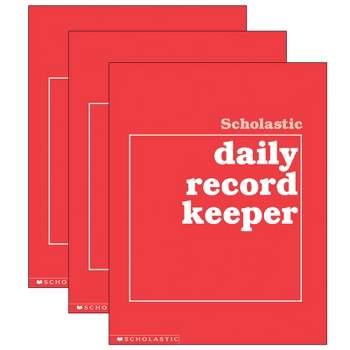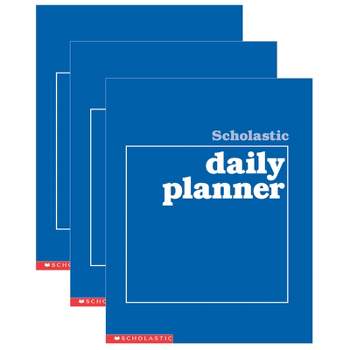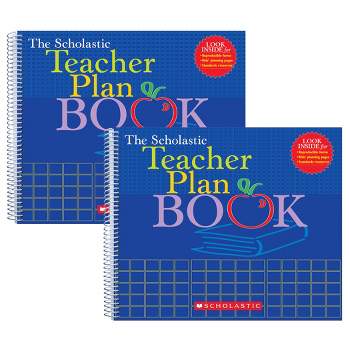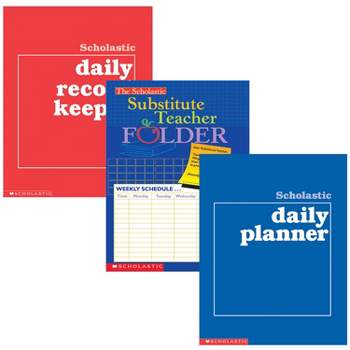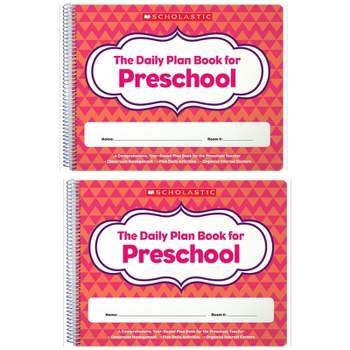Scholastic : Planners
Sponsored
5 results
Related categories
Related searches
Scholastic : Planners
Find the Perfect Planner for Your Needs
Understanding Your Planning Style
Before you dive into the world of planners, it’s essential to understand your personal planning style. Are you someone who likes to detail every minute of the day, or do you prefer a broader overview of your week? If you thrive on daily tasks and checklists, a daily planner might be your best friend. On the other hand, if you like to see the big picture, a weekly or monthly planner could be more your speed. Knowing your planning style will help you choose a planner that complements your organizational habits, making it easier to stay on top of your commitments.
Choosing the Right Layout
Planners come in various layouts, each catering to different planning preferences. Daily planners provide ample space for jotting down detailed schedules, to-do lists, and notes for each day. Weekly planners give a snapshot of your entire week at a glance, perfect for balancing work, personal activities, and long-term goals. Monthly planners offer a high-level overview, ideal for marking significant events, appointments, and deadlines. Consider what type of layout will keep you most organized and motivated. For those who want a bit of everything, combination planners offer the flexibility of multiple layout styles in one book. Whether you’re looking for a teacher planner, student planner, or an ultimate planner for all your needs, there’s a layout that fits your lifestyle.
Prioritizing Features and Extras
Modern planners designed are packed with features designed to enhance productivity. Look for planners with built-in goal-setting sections, habit trackers, and motivational quotes to keep you inspired. Some planners come with additional extras like stickers, bookmarks, and pockets for storing important documents or keepsakes. If you travel frequently or need to keep your planner portable, consider the size and weight of the planner. Features such as spiral binding, lay-flat design, and durable covers can also add to the usability and longevity of your planner. Prioritize the features that will make your planning experience enjoyable and efficient. For moms juggling family schedules or students balancing coursework, these extras can be invaluable.
Considering Aesthetic and Personalization
Your planner is an extension of your personality, so choose one that reflects your style. From minimalist designs to vibrant patterns, there’s a planner to match every aesthetic. Many brands offer customization options, allowing you to add your name, initials, or a favorite quote to the cover. Personalizing your planner not only makes it uniquely yours but can also enhance your connection to it, increasing the likelihood of consistent use. Remember, a planner that you love to look at will be one that you love to use. Whether you’re starting fresh with a new year planner or sticking to a calendar year format, make sure it fits your personal taste.
Budgeting for Your Planner
Planners are available at a wide range of price points, so setting a budget can help narrow down your options. High-end planners often come with premium features and materials, such as leather covers and high-quality paper that resists ink bleed. More affordable planners can be just as functional, offering essential planning tools without the frills. Think about what features are non-negotiable for you and where you can compromise. Investing in a planner is an investment in your productivity and peace of mind, so choose a planner that offers the best value for your needs. Binders can also be a cost-effective way to customize your planning system over time.
Shopping for the perfect planner is a personal journey that hinges on understanding your planning style, preferred layout, desired features, aesthetic tastes, and budget. By considering these factors, you can find a planner that not only helps you stay organized but also inspires you to achieve your goals every day.
FAQs:
Q: What’s the difference between a daily, weekly, and monthly planner?
A: A daily planner focuses on detailed daily schedules and tasks, a weekly planner provides a snapshot of the entire week, and a monthly planner offers a high-level overview of the month’s key events and deadlines.
Q: Can I personalize my planner?
A: Yes, many brands offer customization options such as adding your name, initials, or a favorite quote to the cover, making your planner uniquely yours.
Q: Are expensive planners worth the investment?
A: High-end planners often come with premium features and materials, but even more affordable options can be highly functional. It’s important to choose a planner that fits your budget and meets your essential planning needs.
